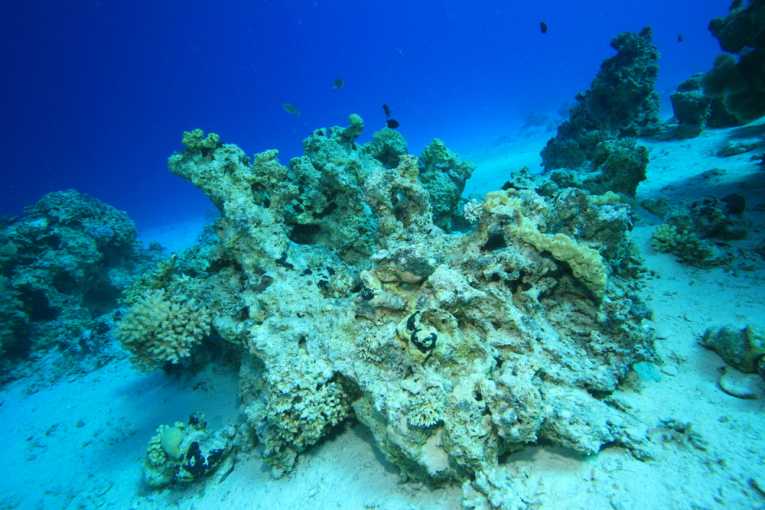Scientists are discovering the truth about the potential fate of coral reef ecosystems in relation to how ocean acidification is affecting them. This has been revealed through observations at Submarine Springs along the coast of Mexico's Yucatan Peninsula.
Scientists expect increasing amounts of carbon dioxide in the atmosphere to see a low pH in the water and these conditions already naturally exist in the water around Submarine Springs, allowing for the perfect place for research.
The research at the springs showed small unevenly distributed colonies of only a few species of coral. These also were not structurally complex as corals in nearby reefs such as the Mesoamerican Barrier Reef. This seems to show that the pH level is having a dramatic effect on coral health.
The study has occurred over the last three years. The team led by scientists at the University of California, Santa Cruz, has published their findings in the journal Coral Reefs.
"This study has some good news and some bad news for corals" said Adina Paytan. Paytan is a research professor in the Institute of Marine Sciences at UC Santa Cruz and continued, "The good news is that some species of corals are able to calcify and grow at very low pH. The bad news is that these are not the ones that build the framework of the coral reefs. So if this is an indication of what will happen with future ocean acidification, the reefs will not be as we know them today."
The lower pH level of the springs has naturally existed for thousands of years but lowering the pH affects the chemical balance of seawater when it comes to calcium carbonate. This in turn reduces the concentration of carbonate ions and therefore makes it much harder for corals to build and maintain their structures.
Paytan said, "We need to understand the mechanisms that allow these corals to calcify at these low-pH conditions. We should also make sure that the places where these species occur are protected".
The research was funded by the National Science Foundation in order to see how acidification affected marine organisms. The conditions seen at the springs are the same conditions that the scientists expect to see in oceans across the world by the year 2100 due to increases in acidification. The findings have concerned the scientists but have also simply confirmed what they had already expected. The increased carbon dioxide in the atmosphere leads to higher acidification in seawater which is now proven to affect the corals growth as well as other organisms.
href="https://earthtimes.org/environment/coral/index.html">Coral














